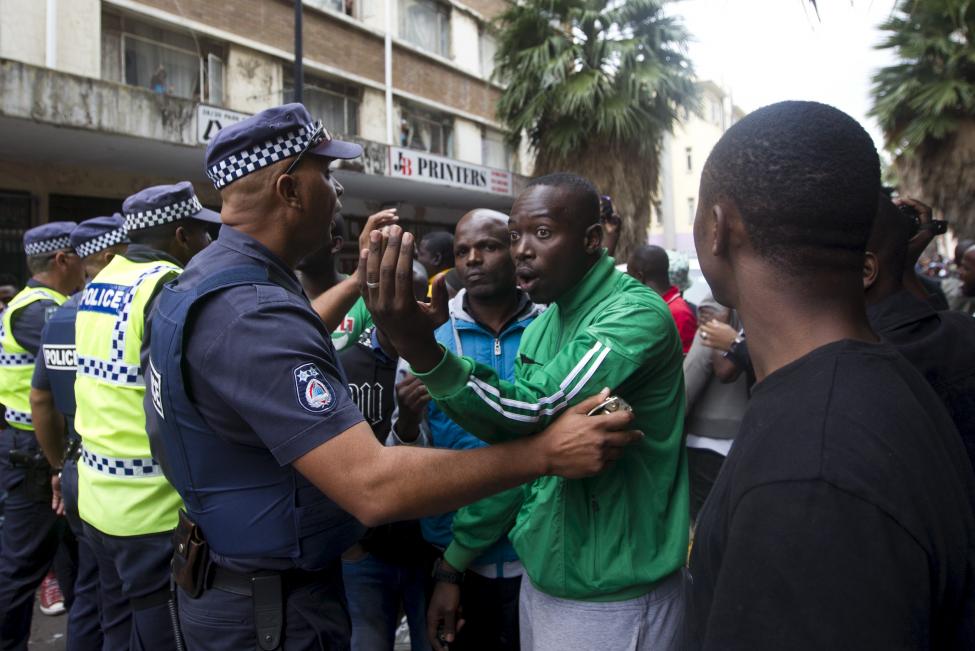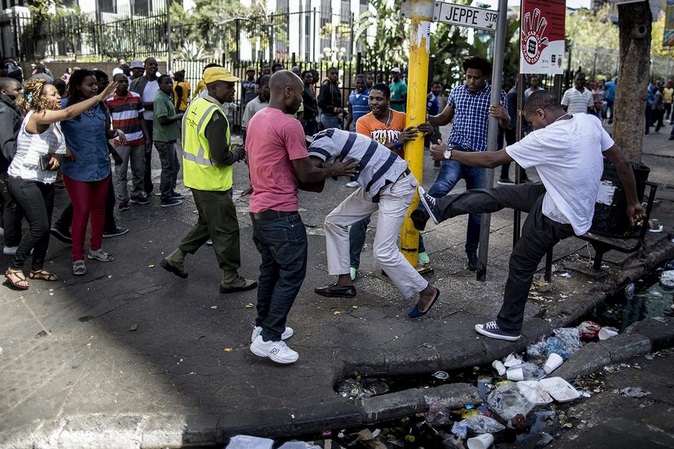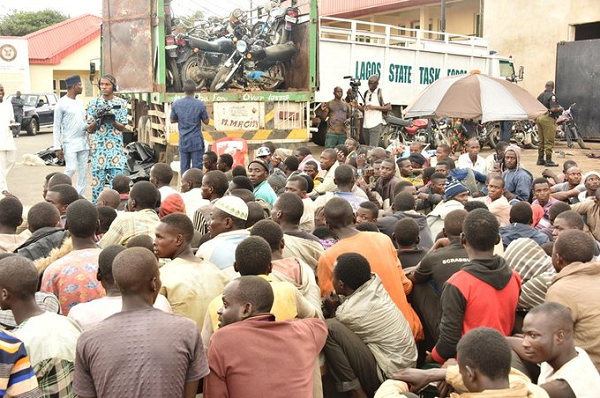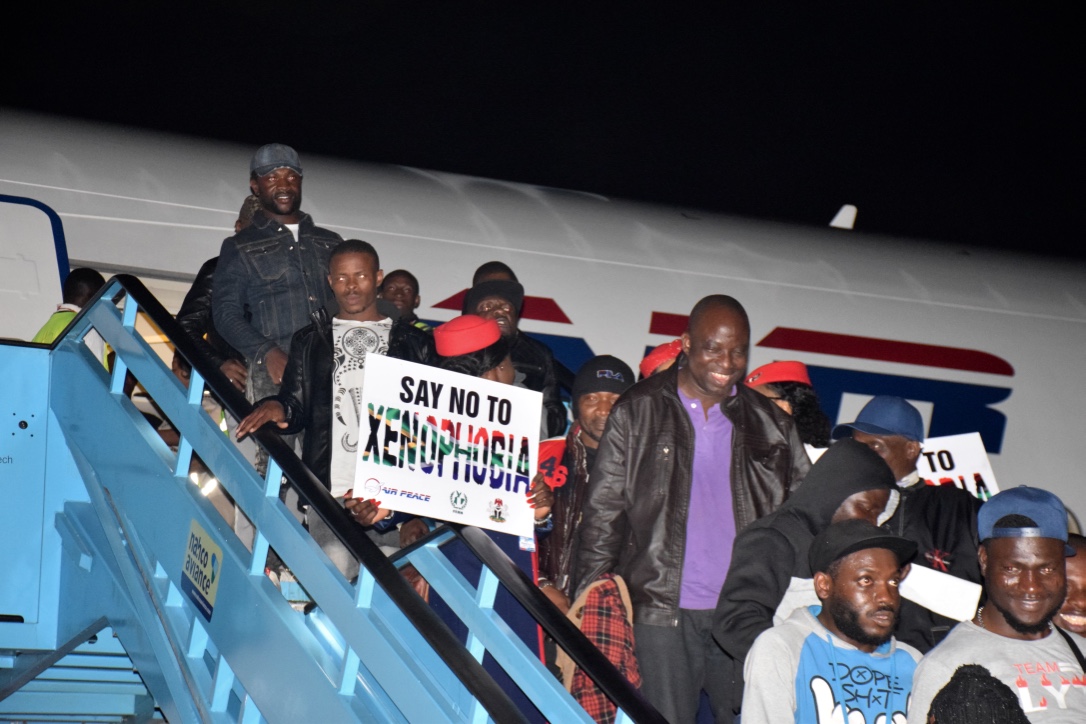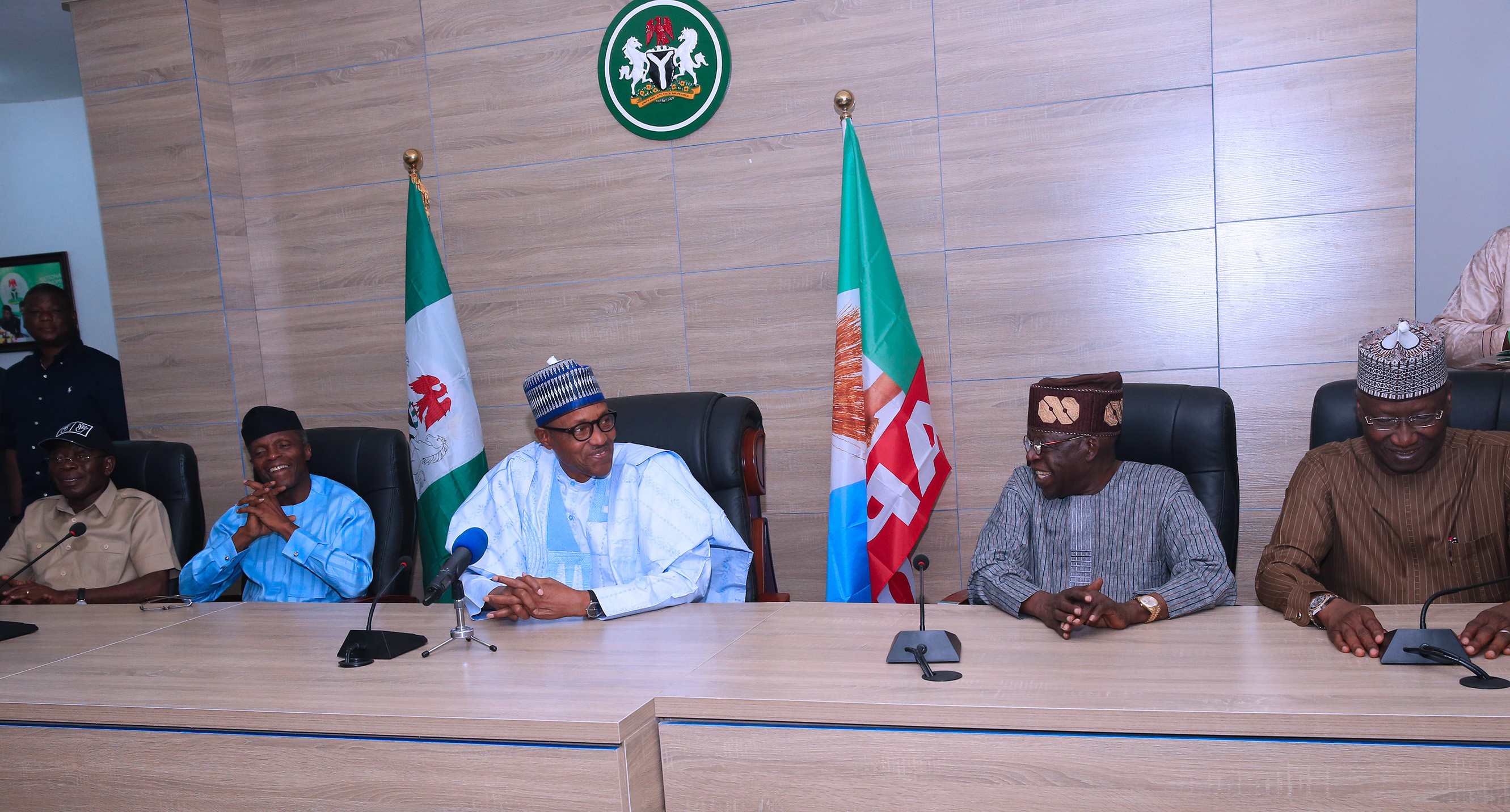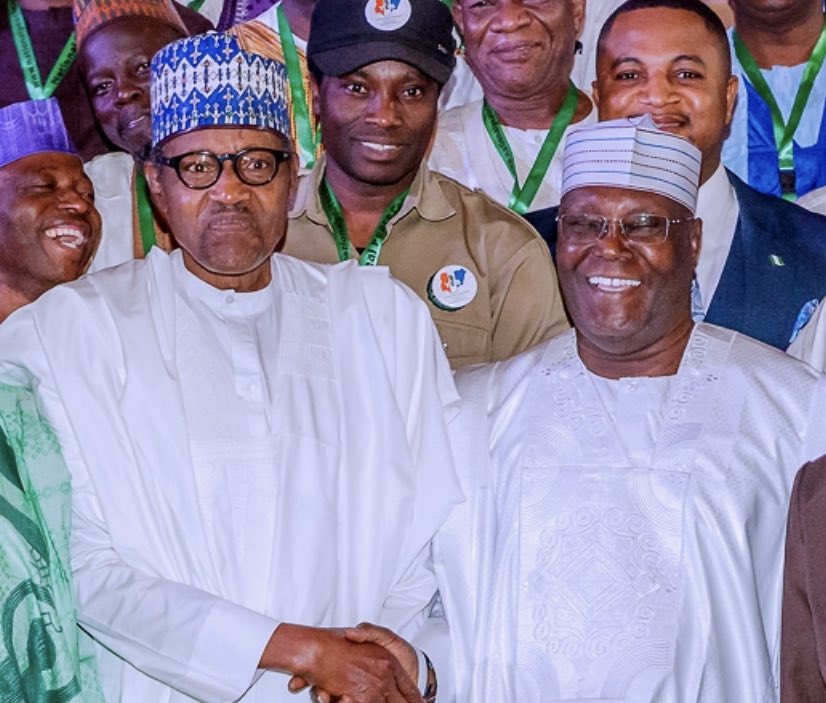Police encourage a group of foreign nationals to move back to their homes after a peace march in Durban, April 16, 2015. Johannesburg was the epicenter of anti-foreigner attacks in 2008 that killed more than 60 people as locals vented frustrations over various issues, particularly the high level of unemployment that plagues Africa's most advanced economy. Reuters/Rogan Ward
Angry mobs have dominated recent images from the streets of South Africa and Nigeria – Africa’s two largest economies.
Even within national boundaries, we have seen pictures in the last few days of defiant groups who feel hard done by, pressed to the wall or left behind by their government. Yet, there are threats of more – not just more protests – but of more of violent, “revolutionary” protests, to come.
Politicians should not pretend that they’re embarrassed, surprised or even confused. Why should they be? Lack of compromise and desperation for power for its own sake – two illegitimate children of politicians – have finally come of age. The result has been a deadly culture of rage and self-help among citizens mis-directing their anger.
Politicians have played a leading role in murdering civility and the streets that produced many of these politicians are reflecting their worst demons.
Advertisement
This might sound a bit unfair, especially since in the xenophobic attacks in South Africa, for example, there was a genuine sense of shame and regret in some circles in that country. The point, however, is that this sentiment has been muted, even eroded, by mixed messages from sections of the political elite and viral videos of mobs in a few townships at the weekend threatening fresh attacks on immigrants.
In Nigeria, angry crowds impatient with the government’s diplomatic shuttle have besieged perceived South African businesses, forcing them to shutter for the second week running. The costs are stacking up.
Even though Pretoria announced plans by President Muhammadu Buhari and President Cyril Ramaphosa to meet in South Africa in October to find ways of ending the violence, the mobs think they already know the way: loot, destroy and kill till the last immigrant – the last African immigrant, that is – leaves South Africa.
Advertisement
Why? Why would people who lived as friends, neighbours, and even family for years, suddenly turn on the next man or woman with sticks and machetes?
It’s partly because they believe what their politicians have been telling them: politicians who were either products of mob culture or who paved their way to power by feeding that culture have been telling the mob exactly what it wants to hear. That the immigrant has been stealing their jobs, polluting their streets with drugs and crime, and violating their women.
That the immigrant has infested and compromised their social security systems and is stealing their benefits. That the immigrant has been reaping where he did not sow and it’s only a matter of time before he will not only steal their harvest but also steal their seed and their land.
For years, this has been the immigrant’s burden – Jew, Chinese, Lebanese or Nigerian.
Advertisement
There has been an upsurge in nationalism and right-wing politics, partly fueled by religious extremism and globalisation. And perhaps the most notorious mascots of nationalism in recent times have been US President Donald Trump, Hungarian President Viktor Mihaly Orban and the British pair of Prime Minister Boris Johnson and Brexit Party leader, Nigel Farage.
But these politicians, however despicable their politics, are not trees outside the forest. Their emergence and rise to power received nutrition and nourishment from the broken, toxic politics within their national boundaries.
In the race to the top, only the fittest survive; and by the fittest here, I mean those who have the deepest pockets and the deadliest political machine, including, of course, the ability to use sound bites to stir up the basest instincts of their supporters against the “other”; the “other” being the opponent or the immigrant.
It’s convenient to blame the streets and to forget that the politicians we complain about are either products of the system or had to play the system to get to the top.
Advertisement
Whether it’s former President Olusegun Obasanjo describing politics as “do-or-die”, Trump asking immigrants to go back to their “shithole”, or Ramaphosa giving the impression during the last campaign that immigrants are South Africa’s problem, civility has broken down in politics as in society.
Politics is, in fact, imitating society and we may have lost the right to complain about the incompetence of politicians long ago. As Jared Diamond wrote in his book, Upheaval, polarisation has degraded politics just as badly as it has many aspects of our ordinary civic life and how we relate to each other.
Advertisement
Notice the way the driver behind honks at the light repeatedly, even before the light has changed from amber to green. Reckon the fury in the eyes of the next driver as your car pointer flicks for space ahead of a dead-end or the stone-cold face of the fellow who, knowing that the doorway cannot take more than one person at a time, shoves you aside just to get in first.
Things are worse on social media where avatars hide behind the veil of anonymity to savage people who either hold a different view, look different or belong to a different party, religion or tribe.
Advertisement
While social media has aided plurality and democratised communication, it has also created multiple cells of hardened, uncompromising warriors. Those who hold similar views band together in their trenches, while viciously attacking or “unfriending” those who hold different views. In Nigerian political parlance, both groups are dis-affectionately called, “the hailers” vs “the wailers”.
As for the shrinking few in-between, there are enough filters and channels to provide them just the kind of news or entertainment they want 24/7. The rest of the world may burn, for all they care.
Advertisement
This is the cauldron which produces our politicians, and which they, in turn, feel obliged to leverage to rise to power and once in power, they exploit it to maintain their base.
There’s an angry mob out there and it’s frightening what we’re getting into with our eyes open. Whether it’s the viral video of mobs attacking a jeep on what looked like a Lagos road, the chilling threat by a respondent in a Vox-pop that the streets of Nigeria will be cleansed with the blood of “big men” in the coming revolution, or the implacable mobs on the streets of Johannesburg, something is fundamentally broken.
We have moved from a time when civility urged us to ask a disagreeable person to go to hell in a way that still made them look forward to the trip, to a season when we prepare hell and process the inhabitants even before we got to know them.
If we want to change what is happening on the streets we must start by taking civility back, the golden measure of which is doing to others as we would like done to us. We must deplore lack of compromise in politics and call out – instead of applauding – politicians who play to our base instincts. We must demand more of ourselves as citizens and, of course, demand more of our leaders.
In our desperation for a better, more secure future after years of failed expectations and betrayal, we have created the fiction that finding scapegoats will heal our wounds and assuage our pain.
Politicians, ever so anxious to get power and keep it at any cost, are saving us the trouble of looking far or doing the tough job producing results by performance. They are simply supplying more than enough scapegoats for the sacrifice, whether they are immigrants, opponents or their own fantasies.
Ishiekwene is the Managing Director/Editor-In-Chief of The Interview and member of the board of the Global Editors Network
Views expressed by contributors are strictly personal and not of TheCable.

